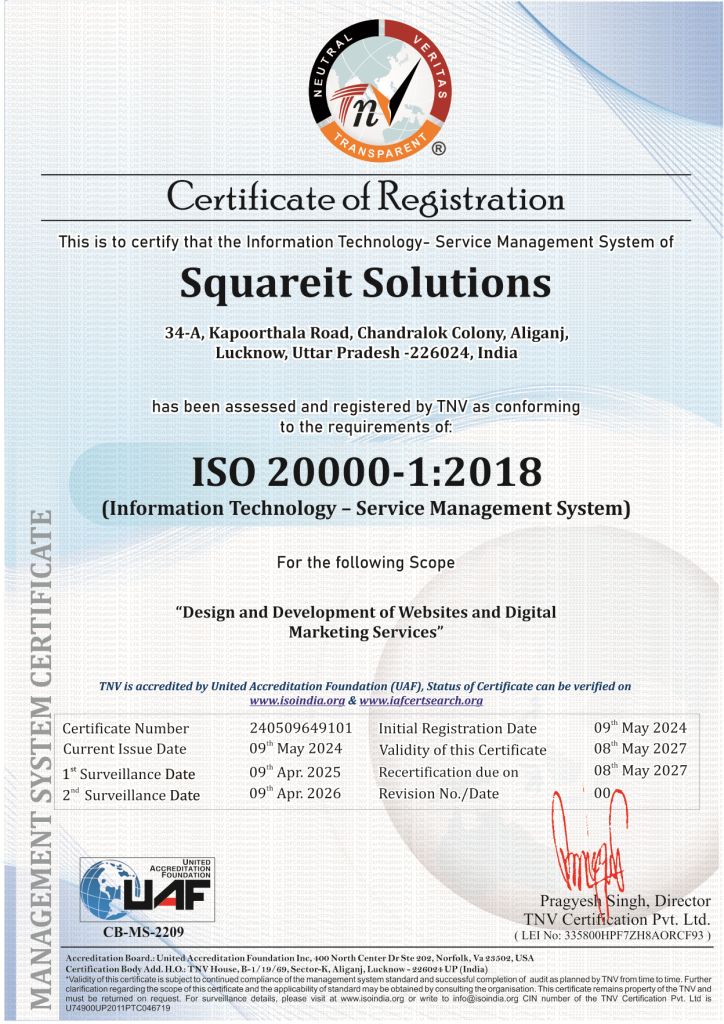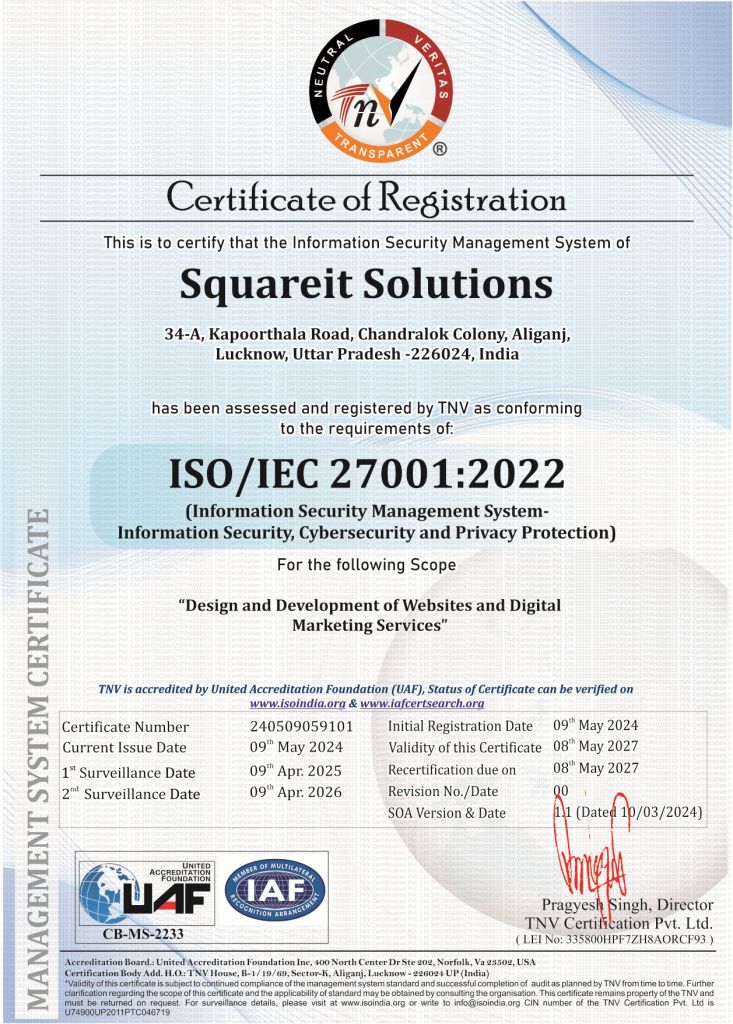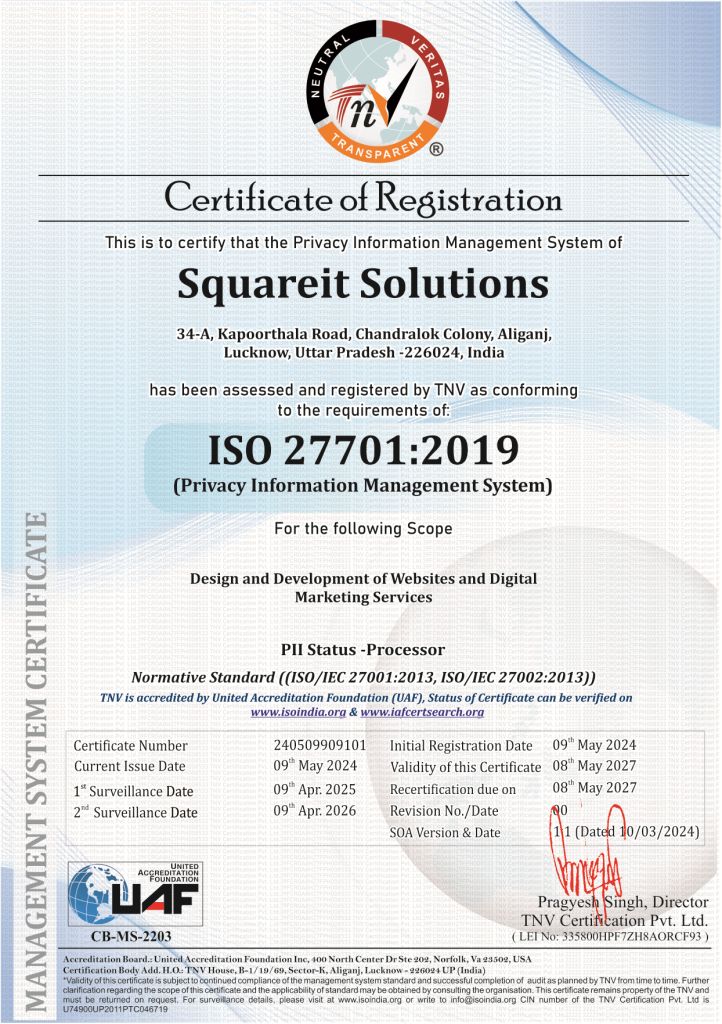In the rapidly evolving business landscape, integrating digital marketing into your overall strategy is not just a choice; it’s a necessity. As businesses strive to stay competitive and relevant, digital marketing has emerged as a critical component for achieving business growth with digital marketing. This blog will guide you through the process of integrating digital marketing into your business strategy for optimal results.
Understanding Digital Marketing
Before diving into the integration process, it’s essential to understand what digital marketing entails. Digital marketing involves advertising and promoting products or services through online platforms and technologies. It encompasses various strategies, including search engine optimization (SEO), content marketing, social media marketing, email marketing, and paid advertising.
The Importance of Integrating Digital Marketing in Business Strategy
- Increased Reach and Visibility: Integrating digital marketing enables businesses to reach a broader global audience. Unlike traditional marketing, digital marketing provides the tools to target specific demographics, ensuring that your message reaches the right people at the right time.
- Cost-Effectiveness: Digital marketing typically offers a more budget-friendly alternative compared to traditional marketing methods, in particular, can benefit from this by allocating their budgets more efficiently and achieving significant results without substantial expenditure.
- Measurable Results: One of the significant advantages of digital marketing is the ability to track and measure results in real time. This allows businesses to understand which strategies are working and make necessary adjustments to optimize their digital marketing strategy.
- Improved Customer Engagement: Through social media platforms, blogs, and other digital channels, businesses can interact directly with their customers. This engagement fosters trust and loyalty, ultimately driving sales and business growth with digital marketing.
Steps to Integrate Digital Marketing into Your Business Strategy
1. Define Your Objectives
The first step in integrating digital marketing is to define your business objectives clearly. What do you aim to achieve with your digital marketing efforts? Common goals include boosting brand awareness, generating leads, increasing sales, and enhancing customer retention. Having clear goals will guide your digital marketing strategy and help measure success.
2. Identify Your Target Audience
Grasping the needs and preferences of your target audience is essential for successful digital marketing. Conduct market research to identify the demographics, preferences, and behaviors of your potential customers. This information will help tailor your digital marketing strategy to meet the specific needs and interests of your audience.
3. Develop a Comprehensive Digital Marketing Plan
A well-rounded digital marketing plan should encompass various strategies and channels. Here are some key components to consider:
- SEO (Search Engine Optimization): Optimize your website and content to rank higher in search engine results, making it easier for potential customers to find you.
- Content Marketing: Develop valuable, pertinent, and regular content to captivate and maintain a well-defined audience. This encompasses blogs, articles, videos, infographics, and other formats.
- Social Media Marketing: Harness platforms such as Facebook, Instagram, Twitter, and LinkedIn to interact with your audience, distribute content, and market your products or services effectively.
- Email Marketing: Establish and cultivate connections with your audience through personalized email campaigns. It's a powerful tool for keeping customers engaged and well-informed.
- Paid Advertising: Invest in paid advertising, such as Google Ads, social media ads, and display ads, to reach a broader audience and drive traffic to your website.
4. Create High-Quality Content
High-quality, valuable content forms the foundation of every effective digital marketing strategy. By focusing on content that meets your audience's needs and interests, you can establish authority in your industry and foster trust among your customers.
5. Leverage Social Media
Social media platforms offer immense opportunities for business growth with digital marketing. Use these platforms to share your content, engage with your audience, and promote your products or services. Social media also allows for real-time interaction, enabling you to respond to customer inquiries and feedback promptly.
6. Implement SEO Best Practices
SEO is vital for driving organic traffic to your website. Optimize your website’s structure, content, and keywords to improve your search engine rankings. Regularly update your content and use relevant keywords to stay competitive in search engine results.
7. Utilize Data and Analytics
Data and analytics are essential for optimizing your business strategy. Use tools like Google Analytics, social media insights, and email marketing metrics to track your performance. Analyze this data to understand what’s working and what’s not, and make data-driven decisions to improve your digital marketing strategy.
8. Monitor and Adjust Your Strategy
Digital marketing is ever-changing, and strategies that are effective today may not yield the same results tomorrow. Regularly monitor your campaigns and adjust your strategy based on the results. Stay updated with the latest trends and best practices to ensure your digital marketing strategy remains effective.
9. Invest in Paid Advertising
Although organic reach is crucial, paid advertising can substantially enhance your visibility and extend your reach. Platforms like Google Ads and Facebook Ads offer targeted advertising options that allow you to reach your ideal audience. Allocate a portion of your budget to paid campaigns to complement your organic efforts.
10. Foster Customer Relationships
Building strong is key to long-term success. Use digital marketing channels to engage with your customers, provide excellent customer service, and gather feedback. Loyal customers are more likely to recommend your business and make repeat purchases, driving sustained business growth with digital marketing.
Optimizing Business Strategy with Digital Marketing
Personalization and Customer Experience
One of the significant advantages of integrating digital marketing is the ability to personalize the customer experience. Utilize data and analytics to grasp your customers' preferences, customizing your marketing strategies accordingly. Personalized marketing boosts customer satisfaction and drives higher conversion rates.
Automation and Efficiency
Digital marketing tools and platforms offer automation features that can streamline your marketing efforts. Automate repetitive tasks like email campaigns, social media posts, and ad placements to save time and resources. This allows you to focus on strategic initiatives and optimizing your business strategy.
Cross-Channel Integration
Integrating digital marketing into your overall business strategy involves coordinating efforts across multiple channels. Ensure consistency in your messaging and branding across all platforms, including your website, social media, email, and paid advertising. This unified approach strengthens your brand identity and enhances the customer experience.
Embracing Innovation
The realm of digital marketing is constantly evolving, witnessing the regular emergence of new technologies and trends. Stay ahead of the curve by embracing innovation and experimenting with new strategies. Whether it’s adopting AI-powered tools, exploring influencer marketing, or leveraging augmented reality, being open to innovation can give your business a competitive edge.
Conclusion
Integrating digital marketing into your business strategy is essential for achieving optimal results in today’s competitive landscape. By defining clear objectives, understanding your audience, and implementing a comprehensive digital marketing strategy, you can drive business growth with digital marketing. Focus on creating high-quality content, leveraging social media, and utilizing data and analytics to optimize your business strategy continuously.
Embrace innovation, personalize the customer experience, and invest in paid advertising to enhance your digital marketing efforts. Learn from successful case studies and apply these insights to your business. With a well-integrated digital marketing approach, you can achieve sustained growth, improved customer engagement, and a stronger brand presence in the market. Start integrating digital marketing into your business strategy today and unlock the full potential of your business.
FAQS
Q- How can integrating digital marketing help my business grow?
A- Integrating digital marketing can increase your reach, improve customer engagement, and provide measurable results, leading to significant business growth. It allows you to target specific audiences and optimize your marketing efforts for better ROI.
Q- What are the essential components of a digital marketing strategy?
A- A comprehensive digital marketing strategy should include SEO, content marketing, social media marketing, email marketing, and paid advertising. Each component plays a crucial role in attracting and converting customers.
Q- How do I measure the success of my digital marketing efforts?
A- Track performance using tools such as Google Analytics, insights from social media platforms, and metrics from email marketing campaigns. Analyzing this data helps you understand what works and make data-driven decisions to optimize your strategy.
Q- How can I personalize my digital marketing efforts?
A- Personalize your marketing by using data and analytics to understand your customers' preferences and behaviors. Tailor your content, offers, and communications to meet their specific needs, enhancing customer satisfaction and loyalty.
Q- What role does content play in digital marketing?
A- Content is the cornerstone of digital marketing, providing value to your audience and establishing your authority. Compelling and pertinent content draws in and keeps customers engaged, leading to increased interaction and conversions.






